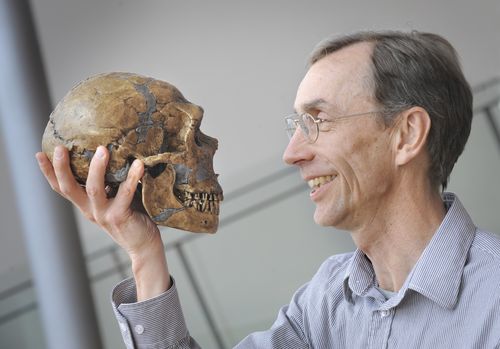Thomas Perlmann, secretary of the Nobel Committee, announced the winner on Monday at the Karolinska Institute in Stockholm, Sweden.
Paabo has spearheaded research comparing the genome of modern humans and our closest extinct relatives, the Neanderthals and Denisovans, showing that there was mixing between the species.

“Paabo’s seminal research gave rise to an entirely new scientific discipline; paleogenomics,” the committee said.
“By revealing genetic differences that distinguish all living humans from extinct hominins, his discoveries provide the basis for exploring what makes us uniquely human.”
When he first unveiled his findings in 2010, Paabo said that “having a first version of the Neanderthal genome fulfills a longstanding dream”.
Paabo has worked as the director of the Max Planck Institute for Evolutionary Anthropology in Leipzig, Germany since 1997, and is an Honorary Research Fellow at London’s Natural History Museum.
“His major contribution is being a pioneer in recovering ancient DNA and that has been extremely important in the study of human evolution,” Chris Stringer, research lead in human evolution at that museum, told CNN on Monday.

In addition to the Neanderthal genome, he also “discovered the Denisovans – a completely new kind of human”, Stringer said.
Read Related Also: ‘The Bold and the Beautiful’: 4 Best Storylines of 2022
Denisovan DNA lives on in some humans today because, once our Homo sapien ancestors encountered the Denisovans, they had sex with them and gave birth – something geneticists call admixture.
“I think the Neanderthal genome was his biggest single contribution. It revealed that Neanderthals interbred with us. That was disputed for many years, including by me. But he showed that most of us have ancient DNA (from Neanderthals and or Denisovans). That DNA may also be medically important,” Stringer added.

The medicine prize kicked off a week of Nobel Prize announcements.
It continues on Tuesday with the physics prize, with chemistry on Wednesday and literature on Thursday. The 2022 Nobel Peace Prize will be announced on Friday and the economics award on October 10.
Last year’s medicine recipients were David Julius and Ardem Patapoutian for their discoveries into how the human body perceives temperature and touch.
The prizes carry a cash award of 10 million Swedish kronor ($1.38 million) and will be handed out on December 10.
The money comes from a bequest left by the prize’s creator, Swedish inventor Alfred Nobel, who died in 1895.







